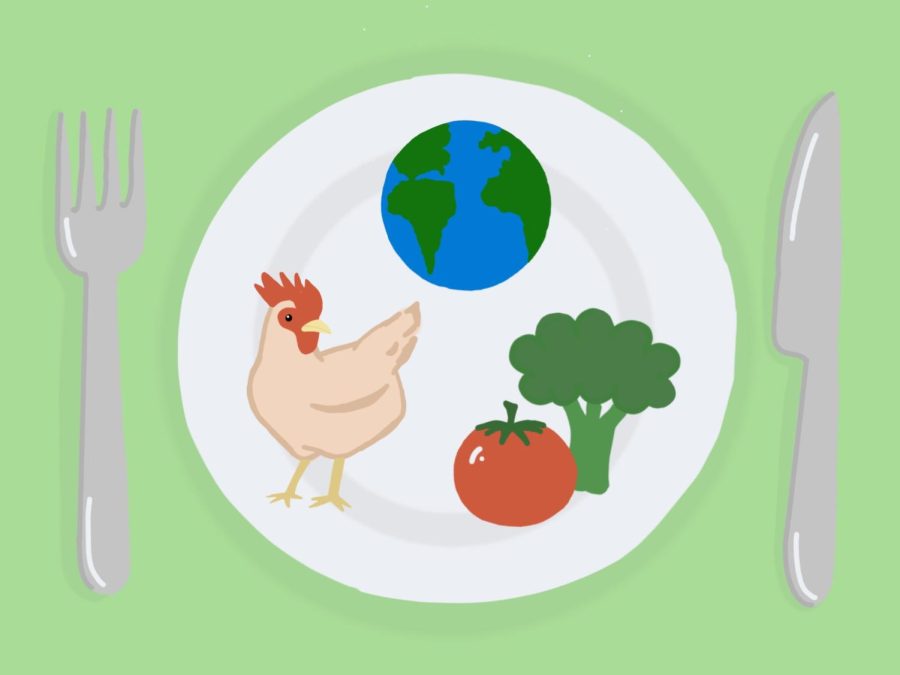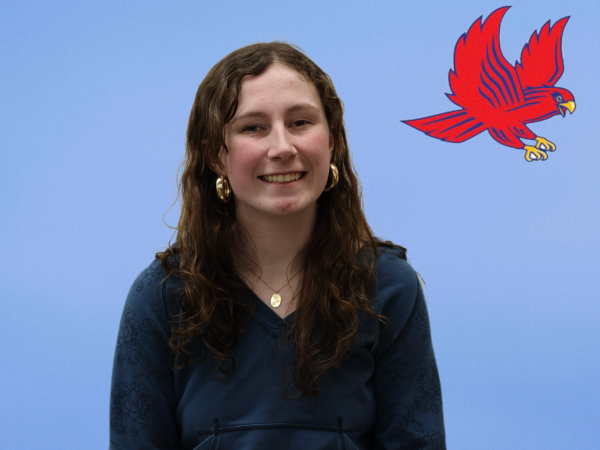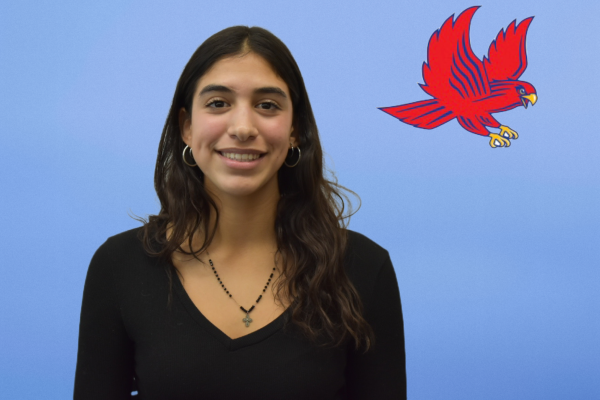It’s More Than a Fad – Why We Became Vegetarian
There are many health benefits to cutting meat completely out of your diet.
January 18, 2023
Being a vegetarian means you do not eat meat, instead opting for a diet consisting of vegetables, fruits, grains, nuts, and often eggs and dairy products depending on the person.
Choosing to become vegetarian is a beneficial decision — for yourself, for animals, and for the environment — but also requires a comprehensive look at the reasoning behind your decision and whether you can implement the necessary practices to keep yourself healthy.
Down below we have compiled some guiding questions with information that has led us to create a permanent change in our lives by becoming vegetarian, along with personal statements to share why this so-called diet is so much more than just cutting out meat.
What effect does vegetarianism have on the environment?
Vegetarianism may seem like an individual decision, but this choice can have positive implications on the world around you.
Cows and sheep are responsible for 37% of total methane generated by human activity, meaning that more cows and sheep raised to be slaughtered for food means more methane in our atmosphere.
Methane is a greenhouse gas, meaning it traps heat in our atmosphere. The more methane there is, the more heat gets trapped, which is why methane is a primary agent in the global warming crisis.
Furthermore, producing meat takes a vast amount of water. Water required to produce a kilo, or 2.205 lbs, of beef can vary from 13,000 to 100,000 liters. A kilo of wheat in comparison requires 1,000 to 2,000 liters of water.
In addition to being a contributing factor towards climate change, a population’s demand for meat products can lead to the destruction of topsoil and deforestation. According to Down to Earth, “livestock farming can lead to overgrazing causing soil erosion, desertification and deforestation. Twenty percent of the world’s grazing land has already been designated as degraded due to the rearing of animals for their meat.”
Half of Earth’s habitable land is used for agriculture. More than three quarters or around 77% is used for livestock, like feed for the animals, grazing land, and pastures. For example, the Amazon Rainforest’s vast ecosystem has been the victim of deforestation in order for there to be more room for livestock. This means that more land that could be used for other things is being used to grow food for animals that will most likely all be slaughtered.
What impacts could it have on your health?
Vegetarianism isn’t just good for the Earth but also for your health.
Vegetarianism is seen by some as simply a fad diet — one that is not sustainable and is just a short-term dietary change.
That assumption could not be any further from the truth.
When done right, a vegetarian or vegan diet “is healthful, nutritionally adequate, and may provide health benefits in the prevention and treatment of certain diseases,” according to The Academy of Nutrition and Dietetics.
Compared to people who eat meat, vegetarians tend to consume less saturated fat and thus are likely to have lower blood pressure. Overconsumption of red meat is bad for your heart, with each 50g of processed meat, like bacon, per day increasing the risk of coronary heart disease by 18%.
Additionally, a predominantly plant-based diet can reduce the risk for type 2 diabetes. A vegetarian diet also leads to more fiber consumption, which is beneficial toward your health.
Could it negatively affect your health?
As good as a vegetarian diet may be, there are also some drawbacks that can accompany the dietary change. Among the obstacles of vegetarianism is a possible deficiency in necessary vitamins, such as D and B12.
A vegetarian diet can also result in an insufficient amount of protein, which is a crucial nutrient that is very important for your health. Protein is needed in your diet to help repair cells and make new ones and it is essential for growth and development. A lack of protein can lead to loss of muscle mass and an increase in infections and illness.
However, these drawbacks can be avoided easily if you make sure to take the proper steps to create a healthy diet and take supplements as needed.
How does going vegetarian impact the meat industry?
When you go to an average grocery store and head over to the meat section, almost all of those animal products likely come from factory farms — a way for farmers to mass produce animals in order to harvest their meat, eggs, milk, and other products, all at the lowest price possible. In other words, the farmers put profit before the health and well-being of their animals.
Within these farms, animals are considered property of their owners, which in return, causes the animals to be treated as machines.
There are many ways factory farms demonstrate cruelty, including confinement and unsanitary conditions. For cows, they are packed into feedlots and forced to stand in their own feces.
Other animals are kept indoors their entire lives. For example, birds are often kept in battery cages — which are rows and columns of identical cages, all connected together — in which they don’t have enough room to spread their wings or participate in any natural behaviors.
In addition, many animals undergo physical surgical changes in order to benefit the factory farming industry.
Birds go through surgery to get some of their beaks removed, because within factory farms they tend to peck each other, potentially causing death.
Cows and pigs go through surgery to remove their tails, without anesthesia. This procedure is done for the convenience of dairy farmers, but they don’t think about the animal’s pain and health complications they have to endure.
Even after those procedures and painful living conditions, the animals are subject to an inhumane death.
One of many examples is chickens; in some farms they are hung by their feet which causes their bones to be broken, and then dunked into electrified water. This action is supposed to stun them as the farmers actually kill them so they don’t feel pain, but many aren’t stunned. Instead they either feel the pain of drowning or the farmers slitting their throat.
Why did we become vegetarians?
Becoming vegetarian is ultimately a personal choice.
Different factors can influence someone to turn to this lifestyle. Both of us had a number of things that initially changed our viewpoints, and through research and gaining outside perspective, we reaffirmed that decision. We have each reflected on the steps that lead us to call ourselves vegetarians.
Clara’s reflection:
I have been vegetarian for almost three and a half years now. Everyone asks me why I chose to become vegetarian, but I don’t remember my original reason for choosing this lifestyle.
In the beginning, my parents thought I was just making this decision on a whim – and with reason. Together we decided I would try it out for a couple weeks and see how it went. A couple years later, I did some research and realized this was the right decision for me.
A challenge for me in the beginning, and sometimes still now, is finding a way to have a healthy diet and not just eat carbs. Especially with playing sports, having enough protein is crucial.
Although learning to find a balance in my diet for my health has been a challenge, I have found many meat alternatives including Beyond burgers, Soyrizo, tofu, and tempeh.
Even though I started vegetarianism just to try it out, I could not imagine going back to eating meat.
Sofia’s reflection:
My decision to become vegetarian was at first made on a whim but was later solidified through research.
The first time I made the choice was when I was around eight or nine years old, watching “Arthur,” an animated series. One episode centered around a girl befriending a pig when visiting a family member’s farm. After she befriended the pig, all she could imagine when faced with a plate of meat was its little face staring at her. For some reason, this really inspired me.
It was one of the first times it truly hit me that bacon used to be a loving creature that was killed. I couldn’t stomach eating meat after that.
This decision lasted a little less than two years. I wasn’t really at the age in which I could easily make nutritious meals on my own, and this was a challenge as my parents were not vegetarian. I was also unaware of the danger of nutritional deficiency and didn’t work on finding alternate sources of much needed vitamins.
I returned to vegetarianism around six months ago. This time it was less spur-of-the-moment but still not a completely thought-out decision. It was only after I made the choice to cut out meat that I properly educated myself on how to maintain a healthy diet and read more about why becoming vegetarian is beneficial.
I was reading a book called Fast Food Nation, which is about the dark side of the fast food industry. One chapter was on how animals, specifically cows, are treated during the slaughtering process. A movie called “Ferdinand” was on in the background, and it used to be one of my favorite animal-related books growing up. The combination of the two made me give up meat.
The book exposed how terrible factory farming and the fast food industry is and how poorly they treats the animals. I also couldn’t look at meat without thinking about “Ferdinand” and all the cruel facts I learned about meat production.
This time around, I am able to cook meals and find healthier meat alternatives so I have a well-balanced diet and receive all the nutrients I need.
To me, being vegetarian is more than the momentary decision I made at the time. It is something I plan on sticking with for the rest of my life and is something that I think will not only benefit the animals, but also the earth and everyone in it.






